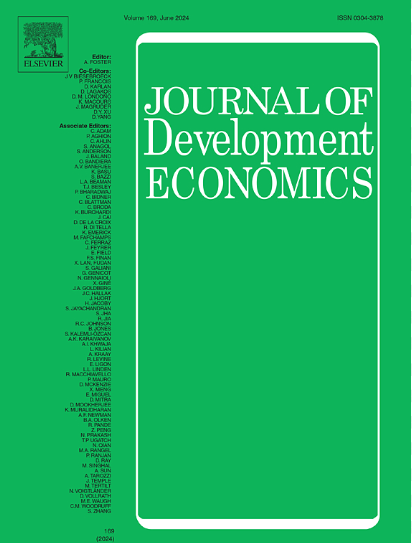Violent conflict and parochial trust: Lab-in-the-field and survey evidence
IF 4.6
1区 经济学
Q1 ECONOMICS
引用次数: 0
Abstract
How does conflict exposure affect trust? We hypothesize that direct (first-hand) experience with conflict induces parochialism: trust towards out-groups worsens, but trust towards in-groups, owing to positive experiences of kin solidarity, may improve. Indirect exposure to conflict through third-party accounts, on the other hand, reduces trust toward everyone, arguably owing to negativity bias. We find consistent support for our hypotheses in a lab-in-the-field experiment in Maluku, Indonesia, which witnessed a salient Christian-Muslim conflict during 1999–2002, as well as in three cross-country datasets exploiting temporal and spatial variation in exposure to violence. Our results help resolve a seeming contradiction in the literature and inform policies on resolving conflicts.
暴力冲突与狭隘信任:实地实验与调查证据
冲突暴露如何影响信任?我们假设直接的(第一手的)冲突经验会导致狭隘主义:对外群体的信任会恶化,但由于亲族团结的积极经验,对内群体的信任可能会改善。另一方面,通过第三方账户间接暴露于冲突会降低对每个人的信任,这可以说是由于消极偏见。我们在印度尼西亚马鲁古的实地实验室实验中发现了对我们假设的一致支持,该实验见证了1999年至2002年期间基督教与穆斯林之间的显著冲突,以及三个利用暴力暴露的时空变化的跨国数据集。我们的研究结果有助于解决文献中看似矛盾的问题,并为解决冲突的政策提供信息。
本文章由计算机程序翻译,如有差异,请以英文原文为准。
求助全文
约1分钟内获得全文
求助全文
来源期刊

Journal of Development Economics
ECONOMICS-
CiteScore
8.30
自引率
4.00%
发文量
126
审稿时长
72 days
期刊介绍:
The Journal of Development Economics publishes papers relating to all aspects of economic development - from immediate policy concerns to structural problems of underdevelopment. The emphasis is on quantitative or analytical work, which is relevant as well as intellectually stimulating.
 求助内容:
求助内容: 应助结果提醒方式:
应助结果提醒方式:


